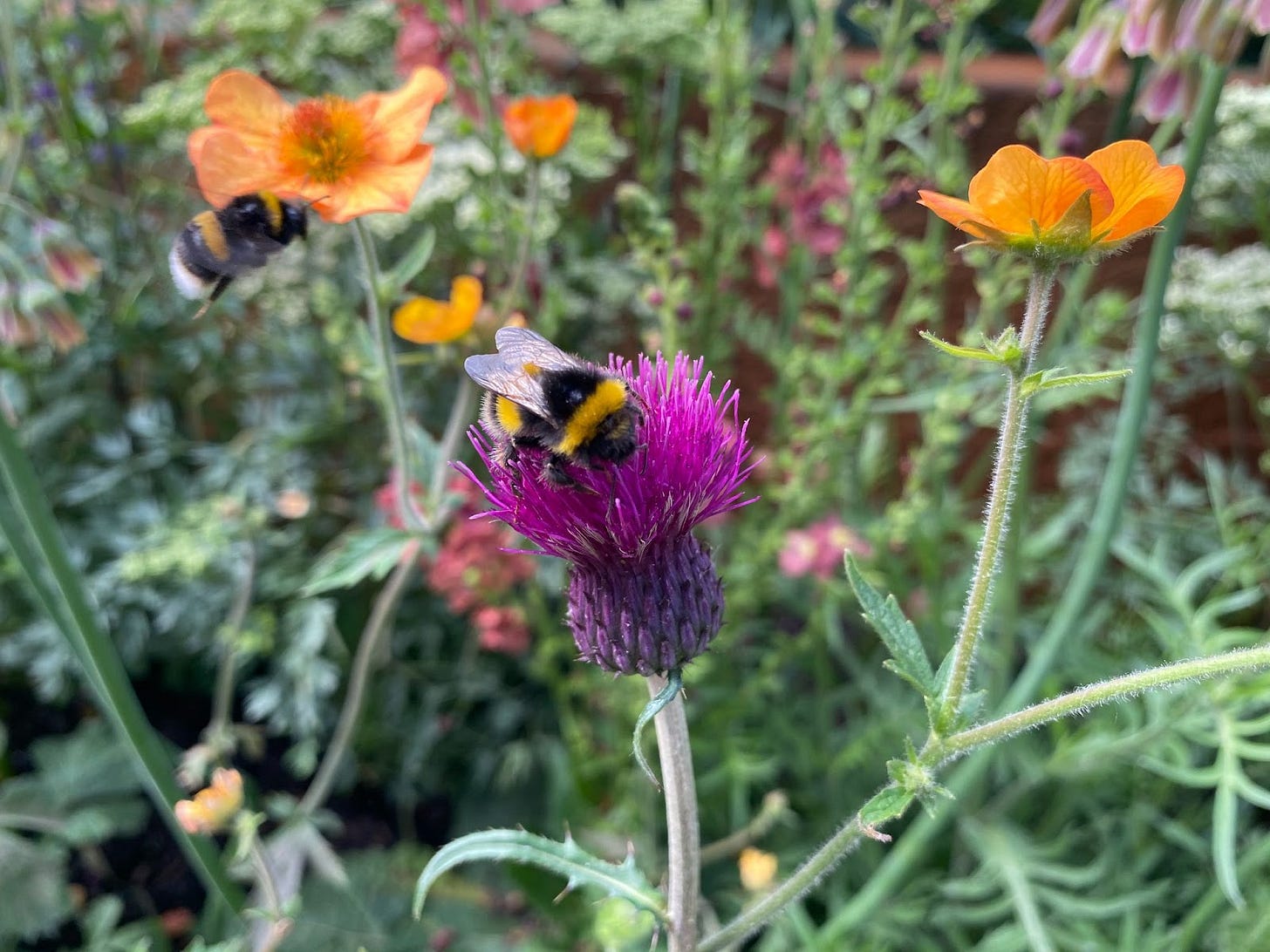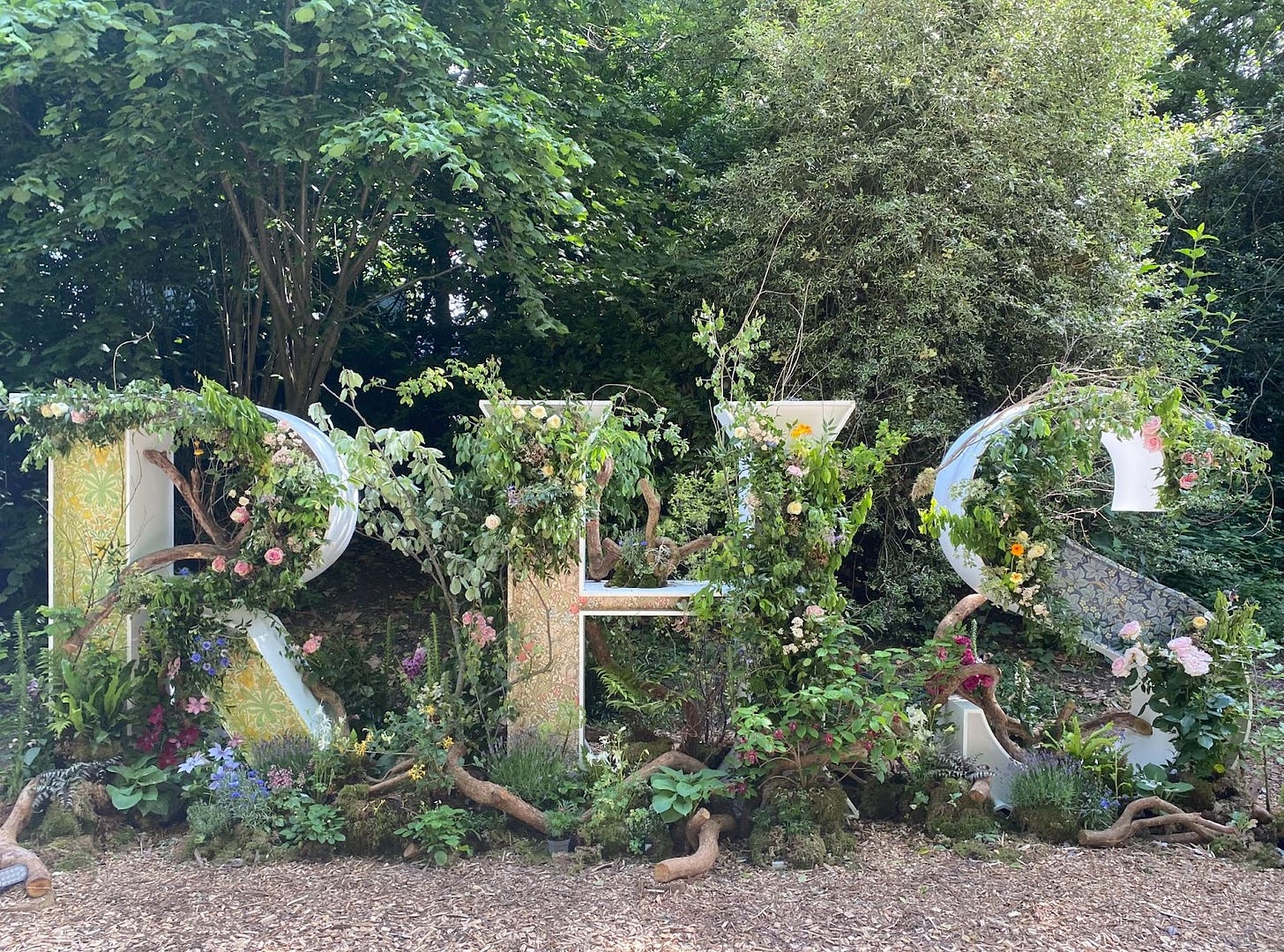This week, we interviewed Dan Masoliver, a London-based journalist, children’s book author, and gardener who writes The Earthworm, a gardening newsletter that reveals the people behind the plants.
This interview has been lightly edited for length and clarity.
What’s your Substack about in one sentence?
The Earthworm is an alternative gardening newsletter that takes a sideways look at the world of gardens, growing, and all that good green stuff.
You aim to broaden the gardening media landscape. What was missing?
The way I see it, traditional gardening media—be that TV, print, or digital—is entirely focused on “how to” garden. Advice. Design inspiration. Tips and tricks and hacks. Don’t get me wrong, I love all of that stuff and lap it up on a daily basis, but as a keen gardener and nature lover myself, it barely scratches the surface of what I want to know and read about the subject.
In The Earthworm, I endeavor to dig a little deeper. My focus is not on how to garden but more why we garden. I explore the experience of being a gardener and whether we can or should be doing things differently. Crucially, I’m as interested in the people who garden—their stories, their ideas—as I am the plants.
My professional background as a magazine features writer and interviewer informs my approach. I try not to be didactic, but curious. I’m here to unearth untold stories and shine a light on fresh perspectives.
What’s the joy of gardening about for you?
Until very recently, gardening had come to be seen as something twee—a hobby for retirees. That is a sad indictment of how humankind in the last century has sought to sever its connection to the natural world.
Plants are the basis of all things: food, medicine, clothing, construction, cosmetics, and so much more. Interacting with plants, watching them grow and understanding the rich web of life that is weaved around them, is a very fulfilling and humbling experience. And in a world where most of us live in concrete jungles and our food comes from an air-conditioned building and wrapped in plastic, it’s more important than ever to feel that connection, that rootedness.
I’m also deeply passionate about the environment, tackling climate change and protecting fragile natural ecosystems. Gardening empowers us to do this, without even leaving our own backyards. More and more people are beginning to realize this, which I think is really encouraging.
How do you decide what to write about and what to leave aside?
I actually don’t find it that difficult to come up with ideas that haven’t been covered before, because the scope and focus of gardening content has historically been so narrow.
My editorial background means I’m used to generating ideas in a fairly rapid-fire way, and I think my point of view, as somewhat of an outsider or latecomer to the world of gardening content, means that I’m not bogged down by the burden of what I think people want to read. It sounds simple, but my first thought when I come up with an idea for a post is always: Would I want to read it? If a person or place or subject or idea seems interesting to me, then chances are it’ll be of interest to my subscribers too.
Has there been a standout interview for you so far?
My interviewees are like my plants: I love them all equally! Having said that, I loved speaking with Tim Richardson, the founder of the Chelsea Fringe Festival. The tone of gardening content can sometimes be a bit patronizing, which reflects that hobbyist perception that I mentioned earlier—it’s all a bit nicey-nicey and small-c conservative. Tim is someone who has spent his career scrutinizing the status quo and challenging the horticultural establishment. I really respect that.
But it was also good fun to interview paper flower artist Susan Beech and indoor urban farmer Matt Chlebek, because they’re exactly the sorts of people who you wouldn’t usually see interviewed in the gardening media. I’m pleased and proud that I can provide them with a platform to share their work with a wider audience.
Read more: The Q&A: Tim Richardson, the maverick mind behind the Chelsea Fringe
Who’s another Substack writer you’d recommend?
I really enjoy Rootbound. Boaz Frankel, who writes it, has a very similar approach to me in the garden but is based on the other side of the Atlantic, which creates a subtle but significant perspective shift. Jo Thompson’s The Gardening Mind is great too, for insight into the thought process of an award-winning garden designer, as is Jan Johnsen’s Gardentopia. And for an inclusive, thought-provoking, and, well, radical take on gardening, Radicle is excellent. I’m not exactly a foodie, but Rebecca May Johnson’s Dinner Document is some of the best food writing I’ve read on any platform. A totally unique voice. And then there’s Donkey Thoughts with Nick Offerman—he covers gardening, growing, and the natural world more than you might think, but mainly he’s just hilarious.
Browse the Substack publications Dan recommends here. Subscribe to The Earthworm, and follow him on Twitter.










Share this post